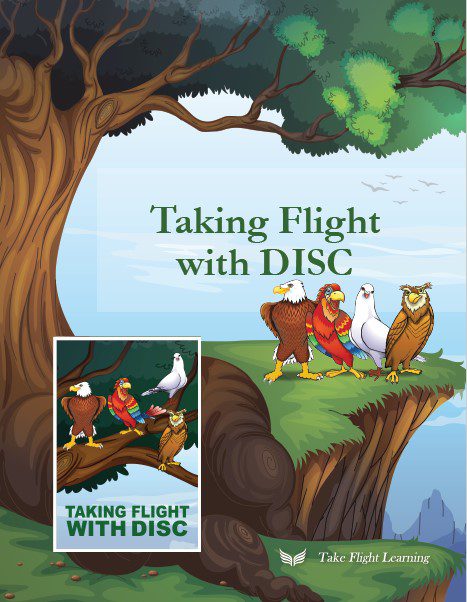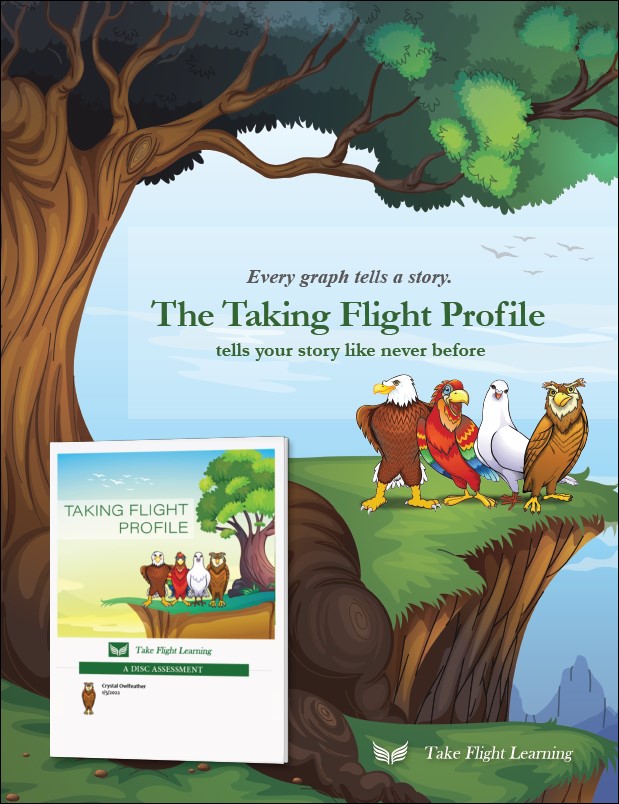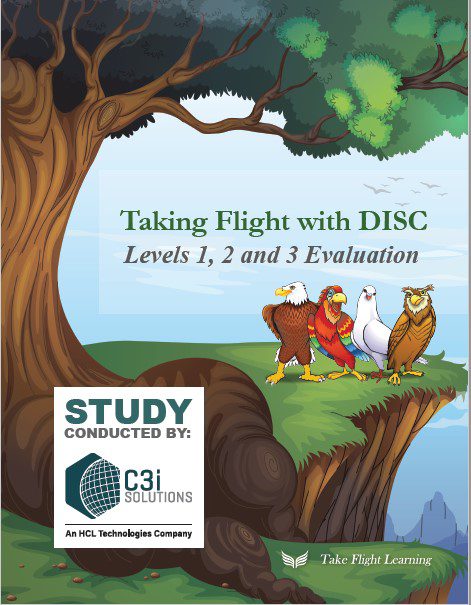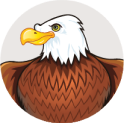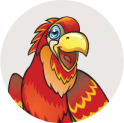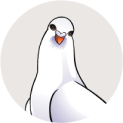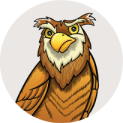Taking Flight with DISC
The Taking Flight with DISC training program is a high-energy training experience where individuals learn about themselves and others. This is not your typical DISC session. We have literally written the book on the DISC styles and reinvented DISC training.
By linking the DISC styles to four birds, the Taking Flight with DISC program breathes new life into the tried and true DISC model. First introduced by Merrick Rosenberg in his book, Taking Flight!, the birds add colorful energy and help create a memorable session for participants. By linking Eagles to the Dominant (D) style, Parrots to the Interactive (I) style, Doves to the Supportive (S) style and Owls to the Conscientious (C) style, people remember the styles like never before. And if people are going to apply new wisdom, they have to remember it! A year from now, when people are asking questions like, “What does the D stand for?” they will still recall that eagle’s personality is direct, decisive, daring, and driven.
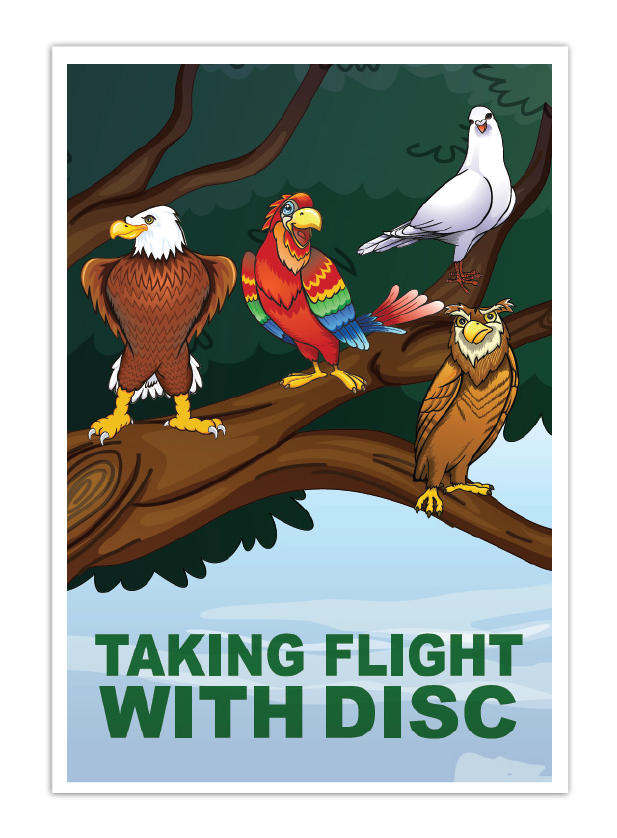


This high energy training program makes self-awareness simple and intuitive, enabling people to easily remember the styles and apply new skills. The result is that participants are able to flex their style to communicate more effectively and respectfully with the people in their lives.
The Taking Flight with DISC training program is based on the tried-and-true DISC personality styles model as represented by Eagles (the Dominant D style), Parrots (the Interactive I style), Doves (the Supportive S style), and Owls (the Conscientious C style). Instead of using letters that have to be memorized, the birds are intuitive. For example, think of an Eagle – the traits of confidence, directness, and a bottom-line, results-orientation are self-evident. Now, think of the letter D. Obviously, this does not convey these traits (or any traits for that matter). The intuitive nature and “stickiness” of the birds allows participants to instantly connect with styles and remember them over the long-term.
Prior to the training program, participants complete the online Taking Flight with DISC Profile. The personalized report is distributed in the session and will help individuals understand their natural tendencies, needs, strengths and potential blind spots. The report offers powerful insights into dealing with other styles and how people can better manage through potentially difficult situations.
While most DISC training programs focus on teaching people the DISC model, they fail to create stronger relationships or drive better results. Instead of focusing on memorizing letters and models, the Taking Flight with DISC program promotes new skill development by linking the styles to important core skills. Since neuroscience states, neurons that wire together fire together, the Taking Flight with DISC session wires DISC to existing knowledge, allowing the styles to trigger right when you need them.
Participants will learn how to utilize the four styles when communicating and listening to others, providing feedback, taking risks, coping with stress, dealing with change, managing time, working in teams, and more. By building on existing knowledge, Take Flight Learning’s brain-friendly approach makes new DISC insights immediately accessible in the moment they are needed.
The Taking Flight with DISC training program is filled with laughter and learning as engaging activities allow participants to experience the DISC styles in action. Through interactive exercises, participants discover how often they impose their style on others and how the simple shift to treating people how they need to be treated will strengthen relationships and increase effectiveness.
Take Flight Learning Brochures
Click the image below to view the brochure of your choice.



